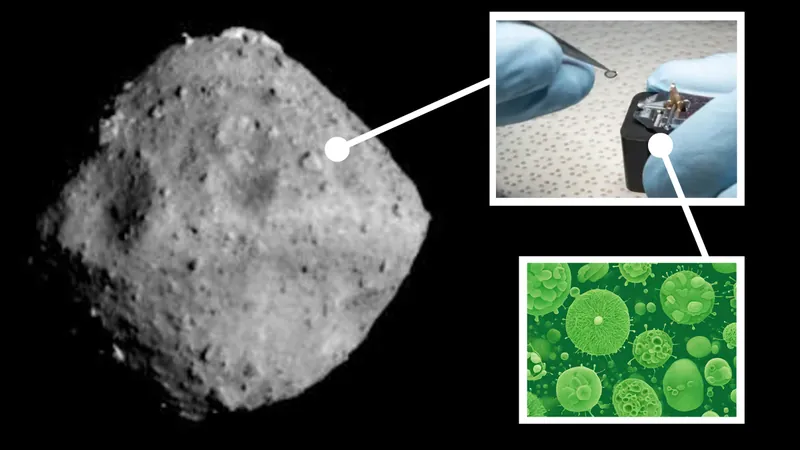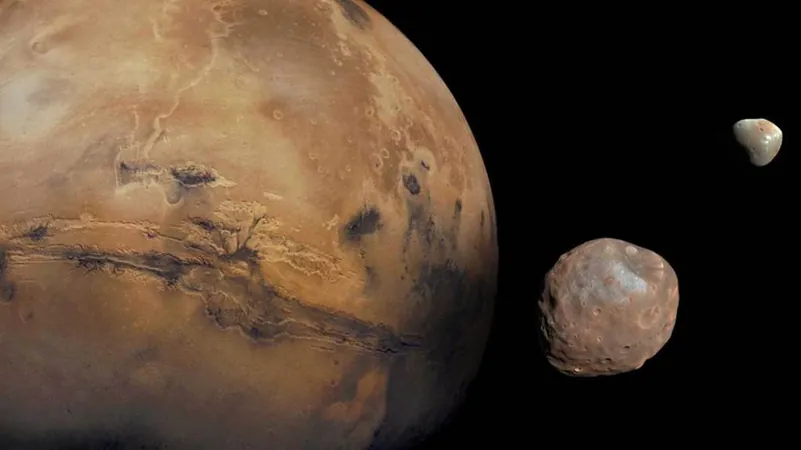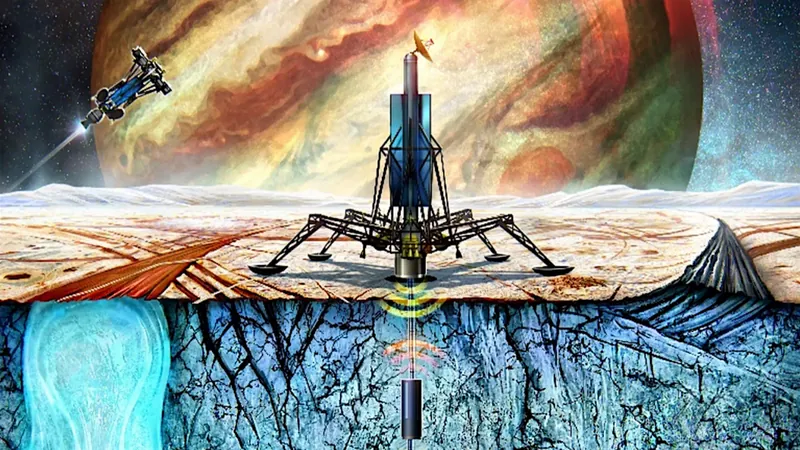
Shocking Discovery: Earth Bacteria Invade Japan's Precious Asteroid Sample from Ryugu!
2024-11-27
Author: Olivia
Groundbreaking Discovery of Earth Bacteria in Asteroid Sample
In a groundbreaking revelation, scientists have found that a sample collected from the asteroid Ryugu has been infested with Earth-based microorganisms since arriving on our planet. This unexpected finding emphasizes the tenacity of terrestrial life forms and their ability to thrive even on extraterrestrial materials.
The Hayabusa2 Mission and Sample Collection
The specimen in question was harvested by Japan's Hayabusa2 spacecraft, which launched in December 2014. After a thorough exploration of Ryugu in June 2018, where it gathered samples from the asteroid’s surface—a rock that measures roughly 3,000 feet (900 meters) in diameter—the spacecraft returned the precious cargo to Earth on December 6, 2020. While Hayabusa2 went on to study additional asteroids, the Ryugu sample was divided among various research teams for analysis.
Surprising Results from Analysis
Matthew Genge, the leading researcher from Imperial College London, revealed the stunning results of their analysis. "We found micro-organisms in a sample returned from an asteroid. They appeared on the rock and spread with time before finally dying off," he explained. Genge noted that while they confirmed these were living microbes, their rapid colonization suggested that they arrived only after the sample was exposed to Earth's atmosphere, having originated from our planet.
Rapid Multiplication of Bacteria Observed
The researchers observed the rapid multiplication of bacteria; within just a week of exposure to Earth, the number soared from a mere 11 to an astonishing 147. Genge expressed his surprise at this discovery, remarking that microbial contamination is rare in polished meteorite specimens.
Implications for Future Space Missions
"Although we strive to find microbial life beyond Earth, such as on Mars, we can unequivocally rule out the presence of extraterrestrial life in this sample," Genge stated. "Our analysis using nano-X-ray computed tomography revealed no microbes were present before the sample was prepared for study."
Concerns for Planetary Protection
The findings highlight an essential concern for future missions exploring Mars and beyond—terrestrial microorganisms are extremely proficient at colonizing new environments, raising fears that spacecraft and rovers may unintentionally contaminate alien ecosystems. Genge stressed the importance of planetary protection protocols that space agencies implement to mitigate this risk.
Broader Implications of Contamination Research
The ramifications of this study extend beyond merely understanding contamination; they shed light on the resilience of life on Earth and its potential influence on extraterrestrial missions. Genge emphasized that careful attention must be paid to contamination concerns when analyzing future samples for signs of life.
Future Research Directions
Looking ahead, the Imperial College team is eager to continue their analysis of samples from Ryugu and Bennu, with hopes for a cleaner examination devoid of Earthly "visitors."
Conclusion: Understanding Life's Resilience
This astonishing finding brings us one step closer to comprehending how life adapts and survives in extreme conditions, both on our home planet and potentially elsewhere in the universe. With scientists urging caution regarding contamination, we'll have to watch closely as the hunt for alien life continues.









 Brasil (PT)
Brasil (PT)
 Canada (EN)
Canada (EN)
 Chile (ES)
Chile (ES)
 España (ES)
España (ES)
 France (FR)
France (FR)
 Hong Kong (EN)
Hong Kong (EN)
 Italia (IT)
Italia (IT)
 日本 (JA)
日本 (JA)
 Magyarország (HU)
Magyarország (HU)
 Norge (NO)
Norge (NO)
 Polska (PL)
Polska (PL)
 Schweiz (DE)
Schweiz (DE)
 Singapore (EN)
Singapore (EN)
 Sverige (SV)
Sverige (SV)
 Suomi (FI)
Suomi (FI)
 Türkiye (TR)
Türkiye (TR)